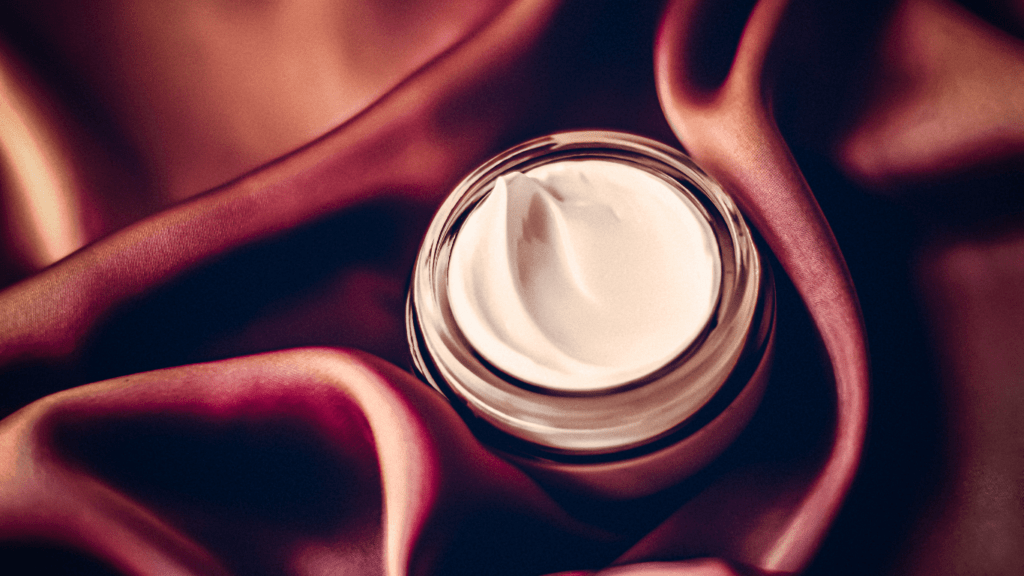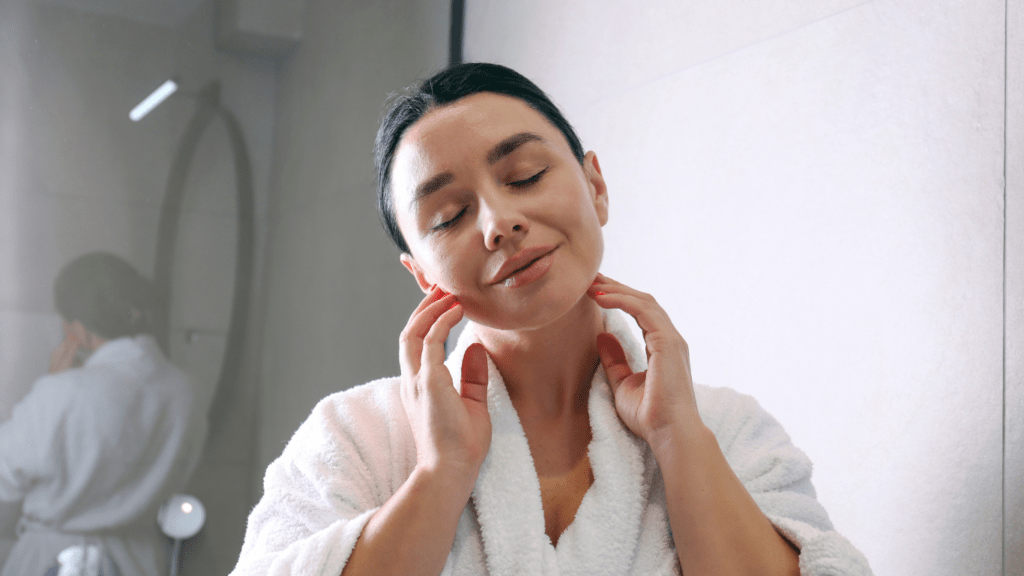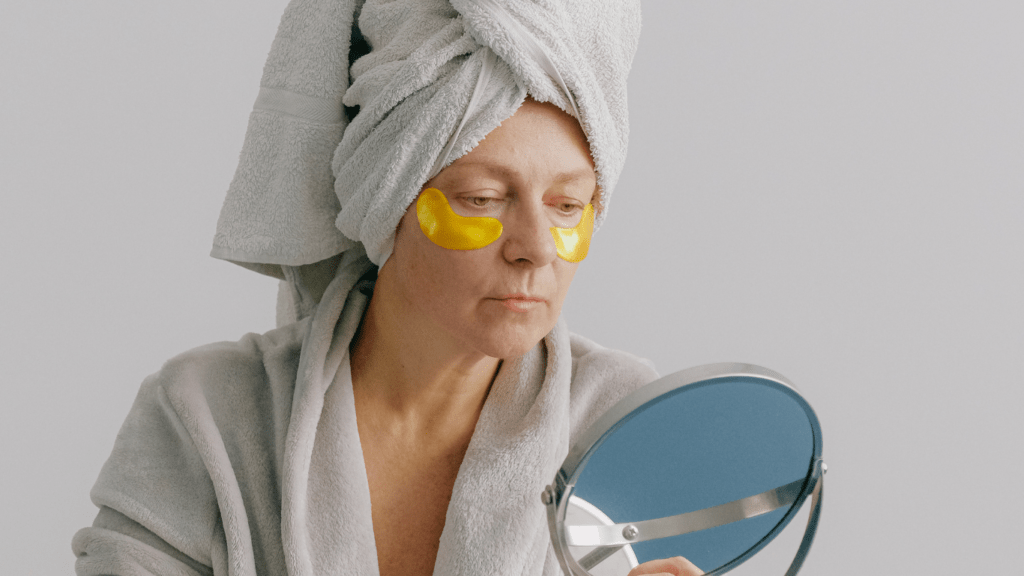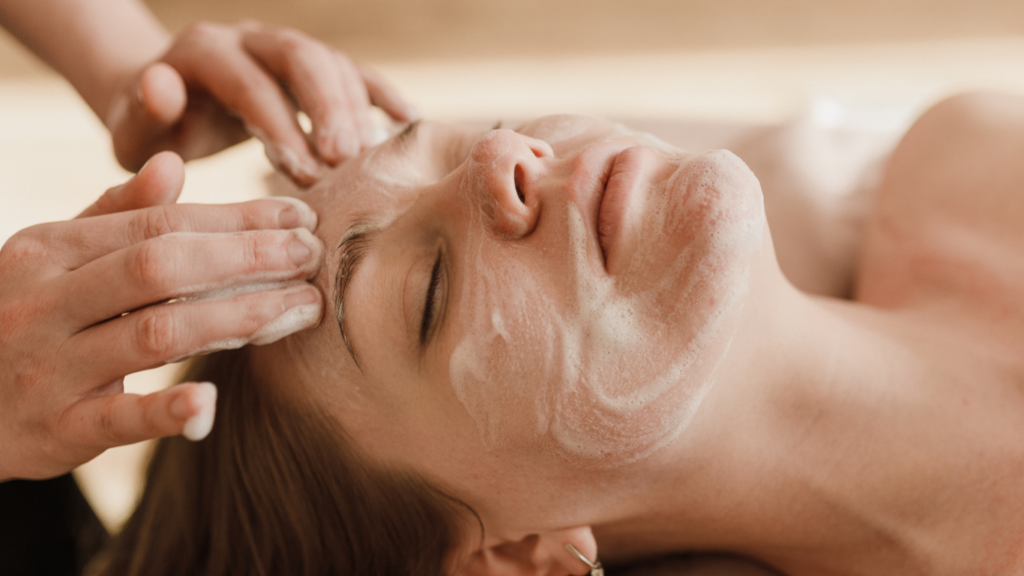Importance of Skincare
Proper skincare preserves the skin’s health and radiance. A consistent routine protects against environmental damage and slows aging signs. Hydrating the skin prevents dryness and maintains elasticity. Cleansing removes impurities and reduces the risk of acne and other skin issues.
Incorporating antioxidants in skincare combats free radicals, supporting skin repair and rejuvenation. Ingredients like Vitamin C and E, known for their benefits, enhance the skin’s natural glow. Sunscreen is critical to protect against UV damage, which can cause premature aging and skin cancer. Regular exfoliation removes dead skin cells, promoting cell turnover and a smoother complexion.
Healthy skin boosts confidence, contributing to overall wellbeing. Understanding your skin type helps tailor a routine, maximizing effectiveness. Proper skincare isn’t about luxury, but about safeguarding your skin for long-term health.
Cleansing Techniques
Keeping your skin clean is crucial for achieving and maintaining a glowing complexion. Effective cleansing removes dirt, oil, and impurities, setting the stage for better absorption of skincare products.
Proper Makeup Removal
Proper makeup removal is vital to prevent clogged pores and breakouts. Use micellar water or a gentle makeup remover to dissolve makeup without harsh rubbing. An oil-based cleanser can effectively break down long-wear foundation and waterproof mascara. Follow up with a water-based cleanser to eliminate residual makeup and oil. Always choose products suited for your skin type to avoid irritation or excessive dryness.
Choosing the Right Cleanser
Choosing the right cleanser depends on your skin type and concerns. For oily or acne-prone skin, opt for a foaming or gel cleanser that removes excess oil without stripping your skin. Dry skin benefits from cream or hydrating cleansers that maintain the skin’s moisture barrier. Sensitive skin requires fragrance-free, hypoallergenic options to minimize irritation. Look for cleansers with beneficial ingredients like salicylic acid, hyaluronic acid, or ceramides based on individual skin needs.
Exfoliation Strategies
Exfoliation removes dead skin cells, revealing healthier, glowing skin underneath. Understanding different exfoliation methods and appropriate frequency ensures optimal results.
Chemical vs. Physical Exfoliation
Chemical exfoliation uses acids or enzymes to dissolve dead skin cells without scrubbing. Popular acids include alpha hydroxy acids (AHAs) and beta hydroxy acids (BHAs). AHAs, such as glycolic acid and lactic acid, target the skin’s surface, making them ideal for dry or sun-damaged skin. BHAs, like salicylic acid, penetrate deeper into the pores, making them suitable for oily or acne-prone skin.
Physical exfoliation involves manually scrubbing the skin with abrasive substances like sugar crystals or exfoliating brushes. While effective in removing dead skin cells, physical exfoliants can be harsh if used improperly, leading to micro-tears. Softer options, such as jojoba beads, provide gentler alternatives that reduce the risk of irritation.
Frequency of Exfoliation
Exfoliation frequency depends on skin type and the strength of the exfoliant. For sensitive skin, exfoliating once a week minimizes irritation. Individuals with normal or combination skin may benefit from bi-weekly exfoliation. Oily or acne-prone skin types tolerate more frequent exfoliation, up to three times a week, if using a gentle exfoliant.
Over-exfoliating can damage the skin’s barrier, leading to redness and sensitivity. Monitoring your skin’s response is crucial to adjusting the exfoliation routine accordingly. Always follow with a moisturizer to keep the skin hydrated and balanced.
Hydration and Moisturization

Maintaining hydration and proper moisturization is key to achieving glowing skin. Effective hydration helps retain moisture, while moisturization locks it in.
Best Hydrating Ingredients
Selecting the right hydrating ingredients can enhance skin’s moisture levels.
- Hyaluronic Acid is renowned for holding up to 1,000 times its weight in water, making it a powerful hydrator.
- Glycerin is another effective ingredient, drawing moisture from the air into the skin.
- Aloe Vera, rich in vitamins and antioxidants, provides soothing and moisturizing benefits.
Additionally, Ceramides help restore the skin barrier, preventing moisture loss and improving hydration. Including these ingredients in skincare routines can make a significant difference in skin hydration.
Tips for Effective Moisturization
Effective moisturization ensures hydration remains within the skin. Applying moisturizer immediately after cleansing helps trap moisture. Using products with humectants like glycerin and hyaluronic acid attracts water to the skin. Occlusives such as petrolatum or mineral oil form a barrier, reducing moisture loss. For best results, layering products from thinnest to thickest texture ensures optimal absorption. Monitoring skin’s reaction to different moisturizers helps in selecting the most beneficial one for your skin type. Avoiding products with high alcohol content prevents dryness, ensuring long-lasting hydration.
Sun Protection
Sun protection plays a vital role in maintaining glowing skin. It guards against premature aging, sunburn, and skin cancer.
Importance of Sunscreen
Sunscreen is a must for any skincare routine. It shields the skin from harmful UV rays, which can cause wrinkles and dark spots. Daily use of sunscreen reduces the risk of skin cancer. According to the Skin Cancer Foundation, using SPF 15 sunscreen cuts the risk of developing melanoma by 50%. It’s essential to apply it every morning and reapply it every two hours when outdoors.
Choosing the Right SPF
Selecting the right SPF is crucial. SPF 30 is suitable for most people; it blocks 97% of UVB rays. Higher SPFs offer marginally better protection but might contain more chemicals. For long outdoor activities, I recommend water-resistant sunscreen, which lasts longer during sweating or swimming. Test product samples when dealing with sensitive skin to avoid irritations.
Diet and Lifestyle
Healthy habits are fundamental to achieving glowing skin. Balancing your diet and lifestyle can greatly influence your skin’s radiance and overall health.
Hydrating Foods
Eating hydrating foods supports skin moisture.
- Foods high in water content, like cucumbers, watermelons, and oranges, help maintain hydration.
- Omega-3 fatty acids, present in salmon and chia seeds, enhance skin elasticity and hydration levels.
- Vitamins A and C, found in carrots and bell peppers, promote collagen production and repair skin damage.
- Dark leafy greens like spinach and kale, rich in antioxidants, protect skin from oxidative stress.
Impact of Stress and Sleep
Managing stress is crucial for clear skin. When stressed, the body produces cortisol, increasing oil production and leading to breakouts. Practicing stress-reducing techniques like meditation or exercise can alleviate these effects. Adequate sleep plays an integral role in skin repair and renewal. During deep sleep phases, the body increases blood flow to the skin, aiding in repair processes and regenerating new cells. Poor sleep, conversely, can lead to dullness, dark circles, and exacerbated skin concerns. Aim for 7-9 hours of quality sleep to support glowing skin.


 Fashion and Beauty Editor-in-Chief at Divine Glamour Trail, is the creator of the platform, which is dedicated to sharing the latest trends in hairstyles, beauty, and skincare. With a passion for timeless fashion and practical style advice, Virginiana provides updates, tips, and insights that inspire readers to elevate their personal style. Her platform blends modern trends with enduring elegance, helping individuals feel confident and look their best.
Fashion and Beauty Editor-in-Chief at Divine Glamour Trail, is the creator of the platform, which is dedicated to sharing the latest trends in hairstyles, beauty, and skincare. With a passion for timeless fashion and practical style advice, Virginiana provides updates, tips, and insights that inspire readers to elevate their personal style. Her platform blends modern trends with enduring elegance, helping individuals feel confident and look their best.
